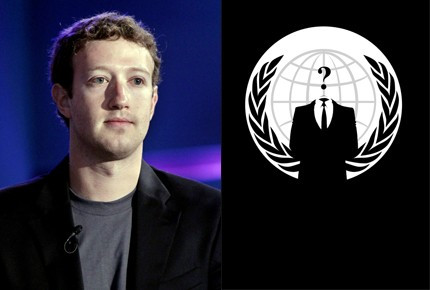Operation Defense: Facebook Hits Back at Criticism Over Cispa

Facebook has hit back at criticism concerning the company's support of an anti-piracy bill that would permit the US government to strengthen security networks against cyber attacks
Following Anonymous' pledge to bring down the websites of Intel, Facebook and IBM, among others, Joel Kaplan, the company's vice president of US pubic policy, has published an open letter justifying his support for the Cyber Intelligence Sharing and Protection Act (Cispa).
Facebook is one of 30 private companies that have backed Cispa, which will enable businesses and the government to more easily share cyber-security information. Critics claim that the legislation contains few restraints on how and when the government may monitor private information and that it could end up damaging file sharers, rather than halting foreign spies or hackers.
The list of companies includes tech and IT companies such as Edison Electric, Microsoft, Intel, IBM, US Telecom, Verizon Wireless and Symantec, as well as communications and phone firms and associations, such as the National Cable & Telecommunications Association, AT&T and Comptel.
Supporters of the bill believe the ability to share information between private and public organisations is crucial to the future of internet security.
"One challenge we and other companies have had is in our ability to share information with each other about cyber attacks," the letter said. "When one company detects an attack, sharing information about that attack promptly with other companies can help protect those other companies and their users from being victimised by the same attack.
"Similarly, if the government learns of an intrusion or other attack, the more it can share about that attack with private companies (and the faster it can share the information), the better the protection for users and our systems," Kaplan added.
Cyber activists fear the law would be as pernicious as Sopa, the Stop Online Privacy Act, which was withdrawn by the White House and the US Senate after a mass protest by hundreds of major user-generated content websites.
Facebook also responded to concerns that Cispa will allow companies to share sensitive personal information with the government in the name of protecting cyber security. "Facebook has no intention of doing this and it is unrelated to the things we liked about HR 3523 [Cispa] in the first place," the letter said.
Anonymous previously attacked two technology companiesfor supporting Cispa. TechAmerica and US Telecom confirmed they were targeted with a Distributed Denial of Service (DDoS) assault by the collective.
With a video posted on YouTube, the collective announced phase two of Operation Defense, an initiative to fight the proposed bill.
"Phase one of Operation Defense is running smoothly," the video says. "We've managed to disable most of our targets. Our targets include any corporation involved in the support of the Cyber Intelligence Sharing and Protection Act and those who were responsible in creating it."
Boeing was among the companies targeted in phase one of the operation.
According to the collective, phase two will start in a fortnight and will include demonstrations in the streets.
For further news on Anonymous's recent activities, check out the IBTimes UK Cyber Warfare section.
© Copyright IBTimes 2025. All rights reserved.






















